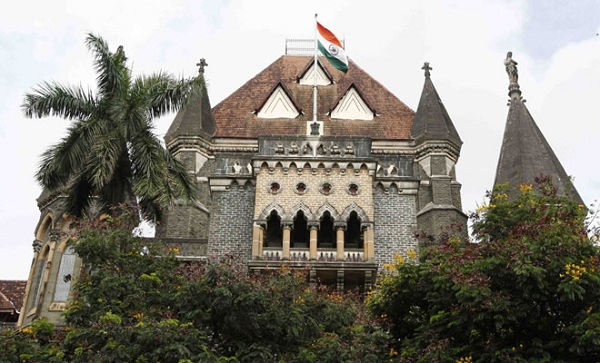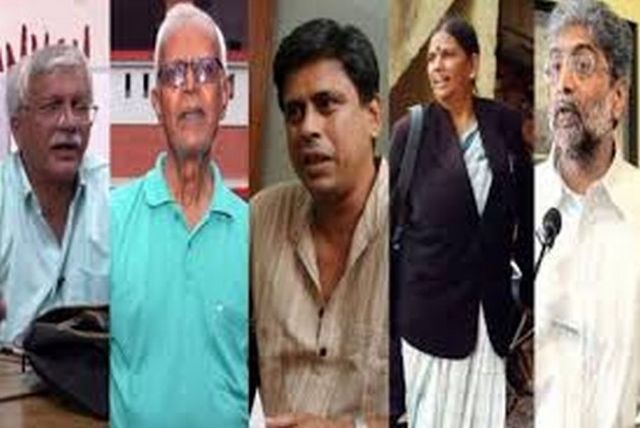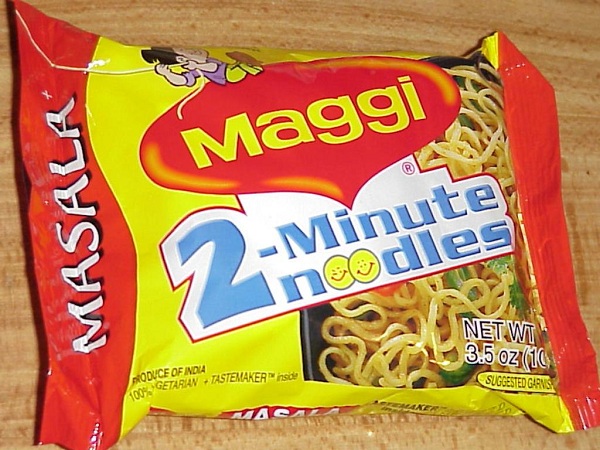
by Editor | May 25, 2021 | Muslim World

Bombay High Court
Maximum of five persons will be allowed on a truck and only five will be permitted walk with the ‘Tazia’ symbol for the last 100 meters on the selected route, the order stated. The five participants of the procession will have to give their home addresses to the Mumbai police beforehand, the court said
NEW DELHI – The Bombay High Court on Friday granted permission for a Muharram procession in the city with stringent restrictions in place in light of the COVID-19 pandemic.
A bench of Justices S J Kathawalla and Madhav Jamdargave permission after the Maharashtra government granted hearing to a local Shia Muslim organisation that had petitioned the court seeking permission for a symbolic procession for Muharram amid the COVID-19 pandemic.
The state government and the petitioner, All India Idaara-E-Tahafuz-E-Hussainiyat, reached an agreement and informed the court of the same on Friday, following which, the court granted permission for the procession. As per the court’s order, members of the Shia Muslim community will be permitted to carry out the procession on August 30, between 4.30 pm and 5.30 pm on one pre-determined route only by trucks and not on foot.
Maximum of five persons will be allowed on a truck and only five will be permitted walk with the ‘Tazia’ symbol for the last 100 meters on the selected route, the order stated. The five participants of the procession will have to give their home addresses to the Mumbai police beforehand, the court said.
The court also directed the state government to impose all necessary restrictions, including section 144 of the Criminal Procedure Code [CrPC] if required, to control crowds and manage the procession.
In its plea filed through advocates Rajendra Shirodkar, and Shehzad and Asif Naqvi, the petitioner organisation had said each year, between the 7th and 10th day of Muharram, the Shia community here carries out a procession holding ‘Alam’ and ‘Tazia’ symbols from Mohammed Ali Road to the graveyard on Reay Road in the city.
The petitioner urged the court to grant permission to carry out the procession this year as well, albeit with limited number of people and with necessary precautions such as masks and social distancing in place. The petitioner had come to HC after the state government issued two government resolutions earlier this month prohibiting mourning processions and asking everyone to mark Muharram at home in light of the pandemic.
The organisation had argued that if the state government had permitted Ganesh idol immersions with health safeguards, it must also permit the Muharram mourning procession. The bench on Thursday had directed the state disaster management department to give the petitioner a hearing and said if the organisation was asking for something similar to what was allowed for Ganpati festival then the state could not deny it permission, as it would amount to “discrimination”.
As per Friday’s order, the procession will be carried out from Bhendi Bazaar to the Shia cemetery in Byculla in the city.

by Editor | May 25, 2021 | News
 New Delhi : The Supreme Court on Wednesday gave no relief to five activists named in the Bhima Koregaon caste violence case and set aside a Bombay High Court order allowing another 90 days to the Maharashtra Police to file charge sheet.
New Delhi : The Supreme Court on Wednesday gave no relief to five activists named in the Bhima Koregaon caste violence case and set aside a Bombay High Court order allowing another 90 days to the Maharashtra Police to file charge sheet.
The five accused activists — Surendra Gadling, Sudhir Dhawale, Mahesh Rout, Roma Wilson and Soma Sen — will not be able to have the benefit of default as the apex court said they now must apply for regular bail.
A trial court had under the Unlawful Prevention Activities Act granted the Maharashtra Police additional 90 days time to file a charge sheet that was beyond a 90-day deadline under the Code of Criminal Procedure.
The activists were arrested from various locations in August 2018 for their alleged role in instigating caste violence in Maharashtra’s Bhima Koregaon village on January 1, 2018.
—IANS

by Editor | May 25, 2021 | News, Politics

Bombay High Court
Mumbai : The Bombay High Court on Tuesday declined to stay a lower court order for framing of charges in a case against Lt. Col. Srikant P. Purohit and 13 other accused in connection with the 2008 Malegaon blast.
Purohit had challenged the decision of the lower court in the high court, seeking a stay on the framing of charges on September 5, the critical pre-trial process in the case.
On August 29, Special Judge Vinod Padalkar of the NIA Special Court had ruled that charges would be framed against Purohit and the remaining 13 accused in the Malegaon case.
Besides challenging the Special Court order, Purohit also sought a stay on the proceedings until the court finally decided on the applicability of the Unlawful Activities (Prevention) Act, under which all the 14 main accused, among them Sadhvi Pragnya Singh Thakur, have been charged, besides provisions of the Indian Penal Code and other laws.
He also questioned the sanction granted by the Maharashtra government in January 2009, for his prosecution and the dismissal of his plea seeking a discharge from the case by the Special Court in December 2017.
The development came exactly 10 years after a powerful low-intensity bomb planted on a motorcycle ripped through a crowded Muslim-majority locality of Malegaon town in Nashik, on September 29, 2008, killing seven and injuring over 100 people.
Purohit, who was granted bail in 2017 after spending nine years in custody, is currently posted at the Military Station in Colaba, south Mumbai.
The 14 accused (including Purohit) are: a former Major Ramesh Upadhyay, Sadhvi Pragnya Singh Thakur, a self-proclaimed seer, Sudhakar Dwivedi alias Dayanand Pandey, Rakesh Dhawde, Sameer Kulkarni, Sudhakar Chaturvedi, Pravin Takalki, Shivnarayan Kalsangra, Shyam Sahu, Ajay Rahirkar, and Jagdish Mhatre, besides two absconders, Sandeep Dange and Ramchandra Kalsangra.
—IANS

by Editor | May 25, 2021 | Finance, News

Bombay High Court
By Quaid Najmi,
Mumbai : A public interest litigation — probably holding the key to the historic demonetisation of November 8, 2016 — filed by RTI activist Manoranjan Roy will finally come up for hearing at Bombay High Court here on February 12.
The PIL was filed in 2015, on the basis of RTI replies received from the Reserve Bank of India (RBI) and other institutions, pertaining to large quantities of “missing or excess” Indian currency notes.
Roy said that as per RTI replies, from 2000 to 2011, RBI had received a certain number of currency notes from the three security printing presses in Nashik, Dewas and Mysuru.
The figures provided by the printing presses were: Rs 500 denomination — 19,45,40,00,000 pieces were sent to RBI, but RBI said it had received only 18,98,46,84,000 pieces: A shortfall of 46,93,16,000 pieces or Rs 23,465 crore.
Similarly, the printing presses said they had sent Rs 1,000 denomination 4,44,13,00,000 pieces, but the RBI said it had received 4,45,30,00,000 pieces: An excess of 1,17,00,000 pieces or Rs 1,170 crore.
In another RTI data for 2000-2011, from the Bharatiya Reserve Bank Note Mudran Pvt. Ltd. said it had sent 13,35,60,00,000 pieces of Rs 500 denomination and 3,35,48,60,000 pieces of Rs 1,000 denomination, but, mysteriously, the RBI apparently never received these currency notes, nor did it disclose details of the same, said Roy.
“How such entirely misleading figures were given by three different and highly responsible government institutions, who are the culprits indulging in the misappropriation, where the staggering amounts of currency notes printed are actually going, are some of the questions that arise, and the answers may come out when my petition is finally heard,” Roy said.
In the petition, Roy had named the Prime Minister, the Finance Minister and the Ministry of Home Affairs, as parties.
However, at one of the early hearings, then Additional Solicitor-General of India, Anil Singh, submitted an affidavit to Roy on January 27, 2016, asking him to delete the names of the PM, FM and MHA.
The affidavit was executed and signed by one Ashish Avinashi, identified as the (then) Deputy HR Manager of Security Printing Minting Corporation of India Ltd. (SPMCIL), Mumbai.
Strangely, this affidavit was not tendered before the Bombay High Court when a division bench comprising Justice V.M. Kanade and Justice Revati Mohite-Dere was hearing the matter, he said.
“The court also deleted the three names of PM, FM and MHA without referring to the affidavit and issued notices to the other parties concerned,” Roy contended.
Undeterred, he filed another RTI query seeking details of the affidavit’s signatory from the SPMCIL and a shocking truth emerged.
“The signatory, Ashish Avinashi, had no authority to sign such an affidavit, since a person from the HR department was not the competent person for this purpose,” Roy said.
Roy’s lawyer, Shashikant Chaudhari, said the case went to a bench of Justice Abhay Oka and Justice Prakash Naik on March 29, 2016, with subsequent dates of April 11, 2016, and then listed as a fresh matter on June 17, 2016.
On April 11, 2016, the RBI’s lawyer Nikhil Chandani argued that Roy’s petition was “frivolous” and there was no need to file a reply to it.
Justice Oka and Justice Naik accepted the argument and asked Roy to restrict himself strictly to the prayers, failing which the court would impose heavy costs, and adjourned it to June 24, 2016.
That day, the court sought to know “where is the petitioner” when Chaudhari tried to argue the matter on behalf of Roy, and said it had gone through the entire petition minutely and felt it was “a frivolous PIL”.
Chaudhari sought time till July 1, 2016, which was granted with specific instructions to the petitioner to withdraw the PIL or face heavy costs.
However, Chaudhari said, at the last minute, the matter was transferred to another bench and, subsequently, Justice V.M. Kanade and Justice Swapna S. Joshi disposed it off on August 23, 2016, “without proper scrutiny”.
On September 22, 2016, Roy filed a Review Petition (No. 5/2016) and the matter remained alive, and now this review plea will come up for hearing next Monday, Chaudhari said.
Meanwhile, barely within 75 days of the petition getting disposed off (August 23, 2016), Prime Minister Narendra Modi announced demonetisation of the Rs 500 and Rs 1,000 denominations, on November 8, 2016, the lawyer said.
The government move was made on various grounds like unearthing black money and fighting terrorism, but the entire matter pertaining to misappropriation of large quantities of Indian currency notes, as available under RTI, was sidelined, Roy claimed.
(Quaid Najmi can be contacted at q.najmi@ians.in)
—IANS

by Editor | May 25, 2021 | Corporate, Corporate Buzz, News
 New Delhi:(IANS) Nestle India on Wednesday said the “masala” version of Maggi noodles will hit the retail shelves as early as this month, having cleared all the tests ordered by the Bombay High Court at three accredited laboratories.
New Delhi:(IANS) Nestle India on Wednesday said the “masala” version of Maggi noodles will hit the retail shelves as early as this month, having cleared all the tests ordered by the Bombay High Court at three accredited laboratories.
“We have received the results from all the three NABL (National Accreditation Board for Testing Calibration Laboratories) mandated by the Bombay High Court to test newly-manufactured Maggi noodles samples,” the company said in a regulatory filing with stock exchanges.
“All the samples of the Maggi noodles masala have been cleared with lead much below permissible limits,” the statement said, adding that this has validated their stand, maintained all along, that the noodles were and continue to be safe.
“We will make our best effort to commence the sale of Maggi noodles masala within this month as well as continue engaging with the states where permissions are needed or specific directions may be necessary.”
What now remains to be resolved is the class action suit of Rs.640 crore filed by the government against Nestle India in the apex consumer court. The verdict on this is expected on November 23.
In mid-October, Nestle India had said that all samples of Maggi noodles of the batches that were in question had passed the required tests as directed by the Bombay High Court, but added that it will be re-launched only after the newly-manufactured product also pass the tests.
The newly-manufactured products underwent the tests at labs in Mohali, Jaipur and Hyderabad.
As regards the other eight variants, a spokesperson for Nestle India said as and when the company decides to re-introduce them, the due process will be followed. He, however, did not indicate the time-frame within which these varieties will hit the market.
The company said Maggi was currently being manufactured at Nanjangud in Karnataka, Moga in Punjab and Bicholim in Goa, and that it was engaging with the state governments of Himachal Pradesh and Uttarakhand for commencing production at Tahliwal and Pantnagar, respectively.
In June, the Food Safety and Standards Authority of India (FSSAI) had ordered a pan-India ban on the company’s noodles on the ground that these were “unsafe and hazardous” for human consumption due to presence of lead, allegedly beyond permissible limits.
But on August 13, the Bombay High Court gave a significant respite to the company by lifting the ban on the sale of the noodle, while also ordering fresh tests to be conducted in three separate labs to ascertain that the product complied with the country’s food safety norms.
The court order meant the original product safety certificate of the watchdog remained valid.
Nestle also said it had, on its own, conducted over 3,500 tests representing around 200 million packs in both national as well as international accredited laboratories — and that all of them had given the noodles a clean chit.
“In addition to these, various countries including the US, UK, Singapore, Australia and others have found Maggi noodles exported from India to be safe for consumption” the statement issued on Wednesday said.
Once the noodles brand had passed the tests as ordered by the court in mid-October, a host of states that had imposed their own ban on the produce also revoked it, led by Karnataka, Goa and Gujarat.
A related case now remains. This pertains to the class action suit filed by the consumer affairs ministry against Nestle India, seeking about Rs.640 crore in damages for alleged unfair trade practices, false labelling and misleading advertisements.
The apex consumer court, which had also ordered fresh tests, is expected to deliver its verdict on this on November 23.



